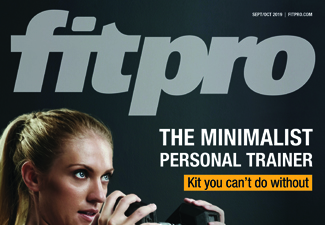Magazine References
Sep – Oct 2019

Pg 18/19
References
- FSA (2004) Survey of caffeine levels in hot beverages, London: Food Standards Agency.
- Rocz, P. (2012) Caffeine – common ingredient in a diet and its influence on human health, Rocz Panstw Zakl Hig, 63.
- Food Standards Agency UK (2008) Caffeine consumption in pregnancy, food.gov.uk/science/research/foodcomponentsresearch/t01programme/t01projlist/t01033#toc-1
- WADA (2019) Antidoping, wada-ama.org/en/content/what-is-prohibited?
- Costill, D., et al. (1978) Effects of caffeine ingestion on metabolism and exercise performance, Med.Sci. Sports, 10:155-158.
- Ivy, J.L., et al. (1979) Influence of caffeine and carbohydrate feedings on endurance performance, Med. Sci. Sports, 11:6-11.
- Sports Dietitians Australia, Caffeine fact sheet, sportsdietitians.com.au/factsheets/supplements/caffeine/
- Bortolotti, H., Altimari, L.R., Vitor-Costa, M. and Cyrino, E. S. (2014) Performance during a 20-km cycling time-trial after caffeine ingestion, Journal of the
- International Society of Sports Nutrition, 11(1).
- Bell, D.G. and McLellan, T.M. (2002) Exercise endurance 1, 3, and 6h after caffeine ingestion in caffeine users and nonusers, Journal of Applied Physiology, 93(4):
- 1227-1234, retrieved from SCOPUS database.
- Glaster, M., Gissane, C. (2018) Caffeine and Physiological Responses to Submaximal Exercise: A Meta-Analysis, Int J Sports Physiol Perform, 13(4):402-411.
Pg 20
References
- v1. Susan Albers, Mindful Eating, https://eatingmindfully.com//research/
- Warren, J., Smith, N., Ashwell, M. (2017) A structured literature review on the role of mindfulness, mindful eating and intuitive eating in changing eating behaviours: effectiveness and associated potential mechanisms, Nutr Res Rev, 30(2):272-283.
- Lynzwinski, L., Caffery, L., Bambling, M., Edirippulige, S. (2019) The Mindfulness App Trial for Weight, Weight-Related Behaviors, and Stress in University Students: Randomized Controlled Trial, MIR Mhealth Uhealth, Apr 10:7(4).


